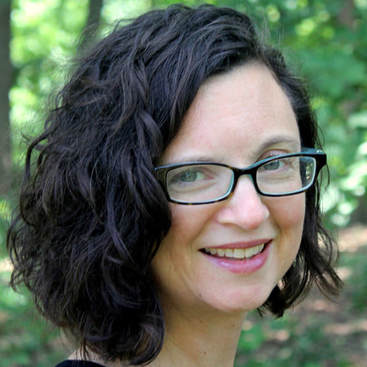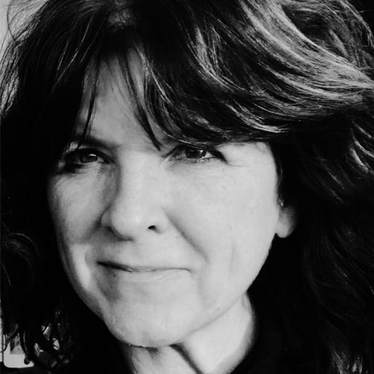An Interview with the Author of "CAT: A Narrative" by Yohanca Delgado “The silver stray cat with sporadic black stripes over its back and tail is crouched in Henry’s backyard again, howling for feline reasons no human heart will ever know.” This is the opening line of Venus Thrash’s contribution to the Grace in Darkness anthology. “CAT: A Narrative” is a poignant short story that weaves together mental illness, animal longing, music, and the reverberating power of emotional memory. Thrash’s short story follows Henry, who has retired from years of singing in the musical CATS. To capture the unique musicality of Henry’s inner voice, Thrash constructed sentences that vibrate with rhythm, assonance, and lyric—sentences like, “In the flash of a year, Henry’s burnt sugar tenor bubbles and thickens into a silky baritone, infusing soulful sweetness into a choir just a hair off-pitch.” It is hard to read this story without thinking of poetry, and it is unsurprising that Thrash is an accomplished poet. She is the author of The Fateful Apple, which was a finalist for the 2012 Jean Feldman Poetry Prize, the 2009 Arktoi Books Poetry Prize and nominated for the 2015 PEN Open Book Award. Thrash’s poetry has appeared in Beltway Poetry Quarterly, Split This Rock, The Beloit Poetry Journal, Torch, Gargoyle and The Arkansas Review. Her work has been anthologized in Resisting Arrest: Poems to Stretch the Sky, Full Moon on K Street: Poems About Washington, DC and Gathering Ground: A Reader Celebrating Cave Canem's First Decade. She is a Cave Canem graduate fellow and a Summer Literary Seminar in Kenya and Fire and Ink scholar. She is co-editor of Beltway Poetry Quarterly and co-director of the Joaquin Miller Poetry Series. I was fortunate enough to talk to the author Thrash about the ways in which her work meld poetry and prose and the creative process behind “CAT: A Narrative.” Your short story “CAT: A Narrative,” echoes one of the last poems in your poetry collection The Fateful Apple, “Rincon, Georgia III.” Both pieces center on cats and on the comforting ritual of seeking them out and caring for them— though they each take the subject in a different direction. Would you say the two pieces are in conversation with each other? Is there something about cats that interests you thematically? I'm severely allergic to cats but they've found a way to enter my work perhaps because they're banned from my life or because they've always been a mystery to me. As a child, I spent my summers in Rincon, GA living with my grandmother. Now, my grandmother wasn't a cat owner either but I was amazed at how dozens of cats suddenly emerged from those dense Georgia woods, their tails erect in the air, and came running up to the back door whenever she called. My grandmother fed them leftovers twice a day. Because of that she had quite a command over them which is an image and moment I wanted to capture in the poem. The story, CAT, emerged from similar observations in that a family of stray cats hang out in my back yard and I've watched them birth several generations. They're resilient, resourceful, bloodthirsty and merciless when it comes to hunting down mama birds and rats. It's my own personal wild kingdom.
1 Comment
An Interview With the Author of "What to Make of Her" by Ambar Pardilla You expect to find the most trite trinkets when searching through someone else’s desk: paper clips, pencils, scissors, staples, and, if you’re lucky, maybe a leftover piece of chewing gum. It’s a place for reverie, reflection, planning, and perspiration. But sometimes a desk can carry secrets, like bills you can’t pay for or letters from your lover. What happens when a confidant or even a stranger stumbles into those things? This is where Lorine Kritzer Pergament’s “What to Make of Her” starts, when Eva combs through her now-deceased friend’s desk and discovers her diary. Eva comes to see that she has a cosmic misunderstanding of their almost familial friendship. Pergament has contributed her work to Gargoyle and Penn-Union. Her piece “Coming of Age” was published in Bridges and her short story, “Smell the Roses on Your Own Time,” appeared in Amazing Graces: Yet Another Collection of Fiction by Washington Area Women. She’s currently working on a book. Ambar Pardilla: What was the inspiration for the story? Lorine Kritzer Pergament: That story just came out of my head. I was assigned a story by Margaret Myers [at Hopkins], who was my instructor and who became my mentor and friend. She was my thesis advisor. It was “Fiction Techniques” [class] — she went through the different elements of fiction. But then we each had to write a short story. She didn’t give us any topic. No prompt. It just came to my head. None of the people are people I know. The only thing — I had a friend whose parents came from Poland and that was how her mother talked. I can remember from childhood. The character of Eva herself wasn’t my friend at all. But I just sort of got the parents, that ethnic thing in because I thought it was an interesting juxtaposition between her parents and Cece’s parents, who were WASPy. I liked having the difference between them and yet, they became good friends. An Interview with the author of "Navigating" by Brenna E. Raffe In 2010, Cheryl Strayed let out into the universe what would come to be, in my opinion, the best Dear Sugar column she ever wrote. Writing may be hard, she said, but if you are a writer, it’s harder not to write. Strayed concluded the piece with the now-famous line: “Write like a motherf---er.” Jessica Claire Haney realized in 2005 that writing was a necessity for her. While grappling with Graves’ Disease – autoimmune hyperthyroidism – as well as celiac disease, depression and related complications, she turned to creative writing as a component of healing. Motherhood and writing have thus always been inextricably linked for Haney, whose work draws heavily from her experiences as a mother of two. Haney’s first publications came out of Writer’s Center workshops. After her health had improved enough for her to have her first child, she joined one writing group and formed another, making fruitful and lasting connections. Recently, she has been focusing more on health and wellness advocacy, but is dialing back her commitment to writing about those topics to spend more time on her emerging novel, The Unspeakable Passing of Clouds. Before she began writing, she was an English teacher—she draws from those experiences in her forthcoming story “Navigating,” which is an adapted chapter from the novel. You can follow Jessica on Instagram @MindfulHealthy, Twitter @CrunchyChewy, and Facebook. BER: Your story for Grace in Darkness, “Navigating,” and the story published in the previous edition of the DC Women Writers Anthology, “Out of Scale” are chapters from your forthcoming novel. Tell me a little more about The Unspeakable Passing of Clouds, how these chapters fit in, and your plans for the book’s future? JCH: The Unspeakable Passing of Clouds follows three Northern Virginia women through three years each a decade apart; we see them in 1992, 2002 and 2012. All women face an experience of unplanned pregnancy, and all grapple with shifting notions of identity and community in a world with evolving definitions of connection. Their lives connect in side-swept ways, as do the lives of strangers. We see Kari most in 1992 when, in her early 20s, she surprises her colleagues at Planned Parenthood by continuing an unplanned pregnancy. As an outspokenly feminist white woman now with a mixed-race baby, she finds herself confronted with unexpectedly complicated ideas about belonging and privilege. Elaine, the character in “Navigating,” is a struggling first-year teacher in 2002 when one of her students confides she’s pregnant. Already on shaky footing and unsure how to reach her needy students, Elaine tries to connect with this pregnant student at school while, in her community, the only connections she seems capable of making are to people from whom she buys furniture on Craigslist. An Interview With the Author of "The Ways I Know Her" by Jackie Brennan If you’re like me, “shaggy” is a word you reserve for endearing, docile creatures like Old English Sheepdogs and Scottish Highland cattle. In the beginning of “The Ways I Know Her,” Lisa Couturier uses the word to describe a barn spider. The first confrontation in the essay is between a caterpillar and a black spider—the one with the proportionally longer abdomen writhing as the other injects it with venom. The haunting image becomes an entrée for a hairier subject in the human realm, with her daughter as a focal point. Couturier is a Marylander and a decorated poet and essayist. Her 2005 collection of essays, The Hope of Snakes was praised widely, and her essay “Dark Horse” won a Pushcart Prize in 2012. Her poetry chapbook Animals / Bodies won a New England Poetry Club Chapbook Award for the club’s centennial year in 2015. Couturier has also been recently selected to teach at the Orion Environmental Writers’ Workshop this June. One of Couturier’s calling cards is her keen ability to observe wildness, even in its subtlest cameos. The skill earned her a place alongside the work of many celebrated writers in the prestigious Sowell Collection, and she draws upon the technique incisively in “The Ways I Know Her.” Prior to the May 2018 release of Grace in Darkness, Lisa answered some of my questions about her larger body of work, and this new essay—which has received two Pushcart nominations. Jackie Brennan: How would you compare this essay to your existing work? Lisa Couturier: I was telling a writer friend of mine, Leslie Pietrzyk—a fiction writer and so good with dialogue—that it’s probably the most human-focused essay I’ve written, since I write primarily about the nonhuman (which requires a lot less dialogue!). At the same time, the essay includes material about bats and horses and a spider and a caterpillar, all of which figure into the narrative because the nonhuman world is of course interconnected with the human. There is pain in both worlds. Loss. Hope. I always see parallels. In fact, I don’t differentiate between the two. They inform each other and move together. Though I think we sometimes forget it, the act of giving birth—which comes up as a prominent and pivotal point in this essay—crosses all boundaries regarding human and nonhuman. In this case, the paradox is that the birth of my daughter was treated so “unnaturally” with all the arrogance of supposed human knowledge. And in the end, the way she was born contributed to the loss of a natural defense system. When I think of the essay as a whole, the “questions” really don’t differ much from my existing work. Questions of life—of how we live in the world, of how we are connected, of relationship, of ethics and responsibility, brutality, hope and love—these are the eternal questions for me, questions that play out in the lives of every living creature. |
Archives
May 2020
Categories |

 RSS Feed
RSS Feed